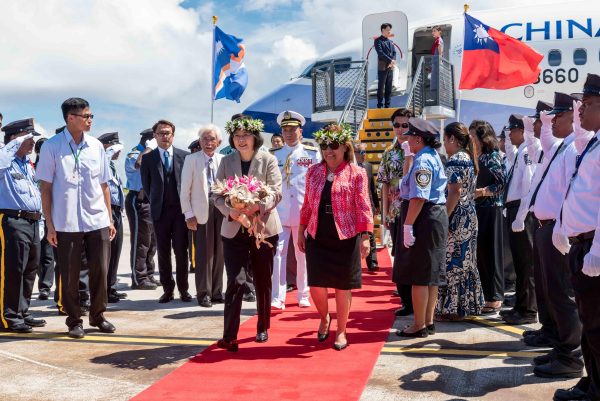It’s shaping up to be a busy election year in the Pacific Islands.
Tuvalu and the Solomon Islands have already held national elections, Vanuatu recently concluded its first referendum, Palau and Kiribati will hold national elections later this year, while Papua New Guinea, the region’s largest country, is due to hold local government elections later this year.
Although these election campaigns are taking place in different contexts, they share many commonalities, including an imbalance in the ratio of men to women among candidates and low levels of female participation.
This inequality highlights the gender gap in politics in the region and could have serious implications for democracy.
Commonalities in Pacific elections
Pacific island countries, where elections are due to take place in 2024, have very low levels of female political representation.
Following January’s election, Tuvalu has no female members of parliament. Lowest percentage of female politicians In the world. Only two women have been heads of state Representing the region were Marshall Islands President Hilda Heine and Samoa’s Prime Minister Fiame Naomi Mataafa.
There are other similarities in this year’s Pacific Islands elections.
Voting would entail major logistical challenges and could strain administrative capacity: April elections in the Solomon Islands were postponed by a year and local elections in Papua New Guinea have already been postponed for two years.
The election comes amid rising geopolitical tensions over China and Taiwan.
Both the Solomon Islands and Kiribati switched to recognition of Beijing in 2019, while Tuvalu and Palau continue to recognize Taiwan, but there is limited evidence that foreign policy plays a decisive role in domestic elections in the region.
Although these last two factors are not directly related to gender equality, they can overshadow the priorities for women’s political participation.
activation Pacific leaders approve gender equality declaration While the goal adopted by the Pacific Islands Forum Summit in 2023 to “strengthen women’s participation in leadership and decision-making” is clear, excessive focus on electoral capacity issues at the domestic level and strategic tensions at the international level may limit attention to this pressing issue.
The difference in participation between men and women is clear
There is limited evidence as to why Pacific Island voters make the decisions they do. A long-standing assumption in the study of Pacific Island politics is that politics is highly localized and that personal relationships between politicians and voters determine elections.
However, this assumption is being called into question by emerging trends in the region. Solomon Islands This year, various politicians have successfully campaigned on national rather than local issues, albeit in campaigns that focused more on individual candidates than party policies.
The picture is also complicated by the diversity of electoral systems across the region: in Kiribati, for example, the president is directly elected and focuses on national issues;
Understanding what women voters actually want is difficult because of a general lack of data on political attitudes in the region: no representative opinion polls or exit polls can be relied upon to draw conclusions here, and Pacific island countries are excluded from global datasets on national attitudes.
but Pacific Awareness Survey The project aims to change this, and findings from its first two rounds of surveys in Samoa (2021) and Vanuatu (2023) provide insights into gender and political participation. The survey shows that key political issues are not always gender-related. When asked about the most important issues facing their countries, male and female respondents highlighted economic concerns, with health in Samoa and climate change in Vanuatu also considered important.
However, survey responses regarding political efficacy and participation revealed clear gender differences. In Samoa and Vanuatu, men were significantly more likely than women to say they were interested in politics and were also much more likely to participate in any form of political activity. In Samoa, women were significantly more likely than men to agree that “for someone like me, it doesn’t really matter what kind of government is in power.” This indicates that the gender gap in political participation is sizable and worrying, with implications for the quality of democracy in the region.
Pacific Island women participate in politics as voters, candidates and politicians at much lower rates than men, creating a male-dominated system in which women’s voices are underrepresented at all levels. The data we have on political attitudes highlights the scope and severity of this problem.
Given the limitations of the data researchers currently have on women’s political participation in the Pacific Islands, a more extensive, region-wide survey of political attitudes would be greatly beneficial.
Many solutions have been proposed to increase women’s political participation, including: Allocation is not common Other changes will also be implemented across the region to make it easier for women to run for political office. Challenges to Samoa’s governance Only matai, or chiefs, can be political candidates.
A strong evidence base will enable better and more effective policy changes.
However, it is clear that gender inequality in Pacific politics is a major concern, from voters to candidates to elected politicians.
Originally Creative Commons by 360 Info™.

